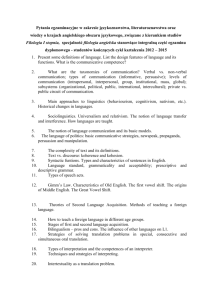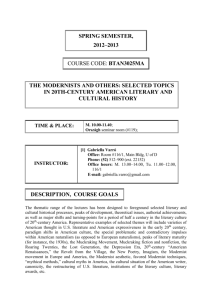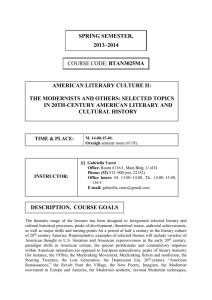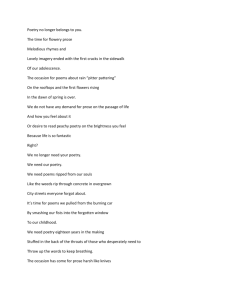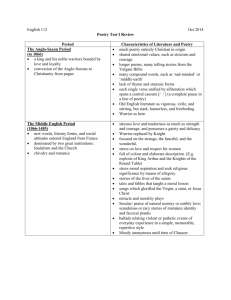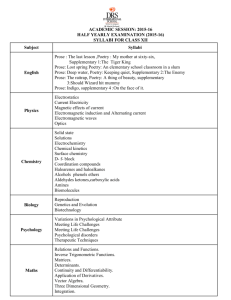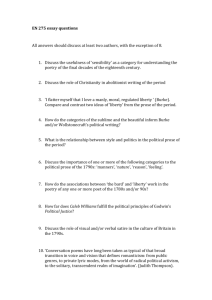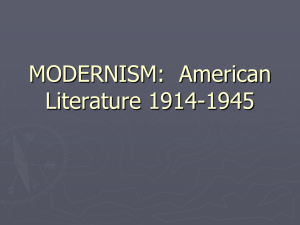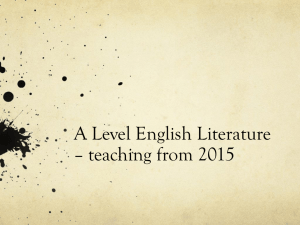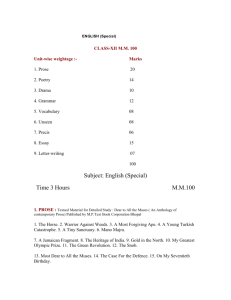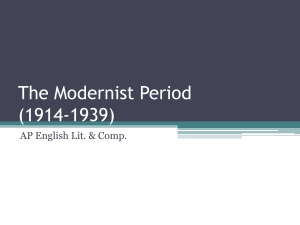A= British History
advertisement
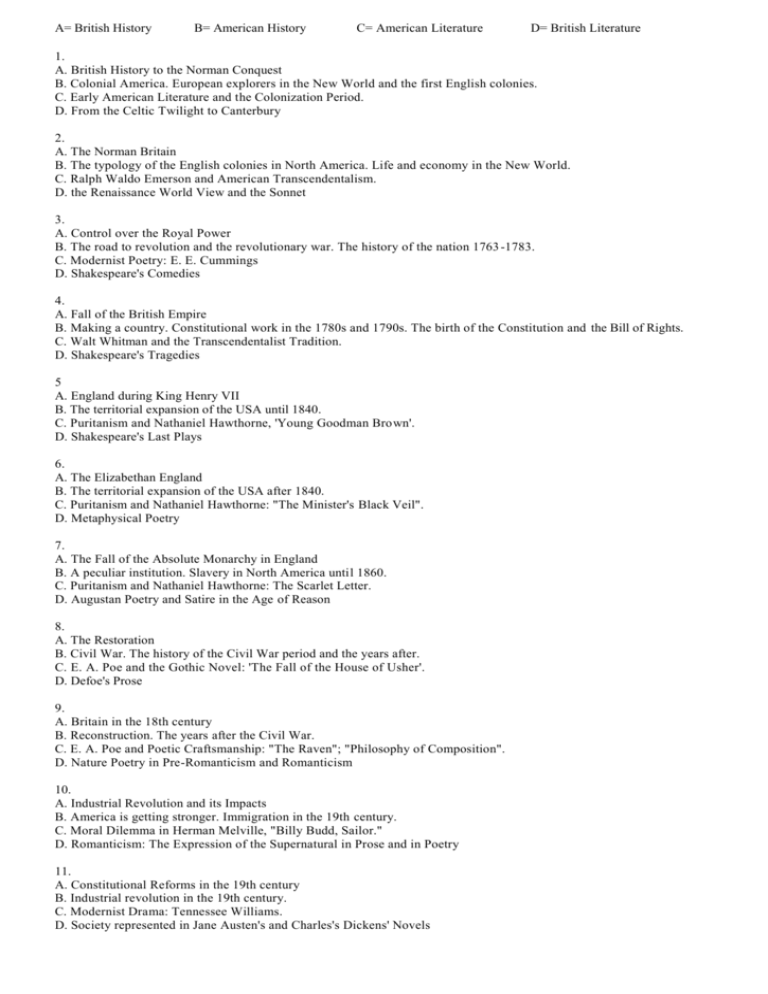
A= British History B= American History C= American Literature D= British Literature 1. A. British History to the Norman Conquest B. Colonial America. European explorers in the New World and the first English colonies. C. Early American Literature and the Colonization Period. D. From the Celtic Twilight to Canterbury 2. A. The Norman Britain B. The typology of the English colonies in North America. Life and economy in the New World. C. Ralph Waldo Emerson and American Transcendentalism. D. the Renaissance World View and the Sonnet 3. A. Control over the Royal Power B. The road to revolution and the revolutionary war. The history of the nation 1763 -1783. C. Modernist Poetry: E. E. Cummings D. Shakespeare's Comedies 4. A. Fall of the British Empire B. Making a country. Constitutional work in the 1780s and 1790s. The birth of the Constitution and the Bill of Rights. C. Walt Whitman and the Transcendentalist Tradition. D. Shakespeare's Tragedies 5 A. England during King Henry VII B. The territorial expansion of the USA until 1840. C. Puritanism and Nathaniel Hawthorne, 'Young Goodman Brown'. D. Shakespeare's Last Plays 6. A. The Elizabethan England B. The territorial expansion of the USA after 1840. C. Puritanism and Nathaniel Hawthorne: "The Minister's Black Veil". D. Metaphysical Poetry 7. A. The Fall of the Absolute Monarchy in England B. A peculiar institution. Slavery in North America until 1860. C. Puritanism and Nathaniel Hawthorne: The Scarlet Letter. D. Augustan Poetry and Satire in the Age of Reason 8. A. The Restoration B. Civil War. The history of the Civil War period and the years after. C. E. A. Poe and the Gothic Novel: 'The Fall of the House of Usher'. D. Defoe's Prose 9. A. Britain in the 18th century B. Reconstruction. The years after the Civil War. C. E. A. Poe and Poetic Craftsmanship: "The Raven"; "Philosophy of Composition". D. Nature Poetry in Pre-Romanticism and Romanticism 10. A. Industrial Revolution and its Impacts B. America is getting stronger. Immigration in the 19th century. C. Moral Dilemma in Herman Melville, "Billy Budd, Sailor." D. Romanticism: The Expression of the Supernatural in Prose and in Poetry 11. A. Constitutional Reforms in the 19th century B. Industrial revolution in the 19th century. C. Modernist Drama: Tennessee Williams. D. Society represented in Jane Austen's and Charles's Dickens' Novels 12. A. The Establishment of the British Colonial Empire B. A new foreign policy. The history of America's foreign policy from the 1890s to 1918. C. Henry James and the Psychological Novel: The Portrait of a Lady. D. Victorian Values Represented in Poetry and Prose 13. A. British European Policy in the 19th century B. The Roaring Twenties. Political. Social and cultural trends in the 1920s. C. Henry James and the Gothic Novel: The Turn of the Screw. D. Modernist Sensibility 14. A. Britain in the Great War B. Depression and New Deal. The history of the Roosevelt administration until World War II. C. Modern Poetry: Robert Frost, W. C. Williams. D. Joseph Conrad's Prose 15. A. International Relations in the 1920s B. From great power to superpower. The USA in World War 11. C. The Lost Generation: F. Scott Fitzgerald, The Great Gatsby. D. The Human Conditions Represented in E. M. Forster's Novels 16. A. In the Shadow of the Nazi Germany B. Cold War politics under Truman and Eisenhower. C. The Lost Generation: Hemingway, The Snows of Kilimanjaro. D. Joyce's Dubliners 17. A. Britain in World War II B. The foreign policy of the USA from Kennedy to Nixon. C. Modernist Drama: Eugene O'Neill. D. Sensibility and Technique in V. Woolf's Novels 18. A. Reconstruction after World War II B. Victory, at last! American diplomacy under Carter and Reagan. C. American Modernist Poetry: T. S. Eliot D. Modernist Poetry 19. A. British Cold War Foreign Policy B. Home matters. Social and political changes in the 1950s and 1960s. C. American Postmodernism: Barthelme. Thurber, "The Secret Life of Walter Mitty" D. Modernist Stage: Beckett, Osborne 20. A. Internal Affairs in the Cold War B. Home matters. The domestic policy of the USA in the 1970s and 1980s. C. Kurt Vonnegut, Slaughterhouse Five D. Recycling in Literature: Tom Stoppard 21. A. The Constitutional Monarchy B. The constitutional system of the American federal republic. C. Kurt Vonnegut and Sci-fi: short stories. D. Fiction after 1945: Golding 22. A. What makes a British person? B. What makes an American? C. The Lost Generation: Sherwood Anderson, Winesburg, Ohio. D. Fiction after 1945: Burgess
